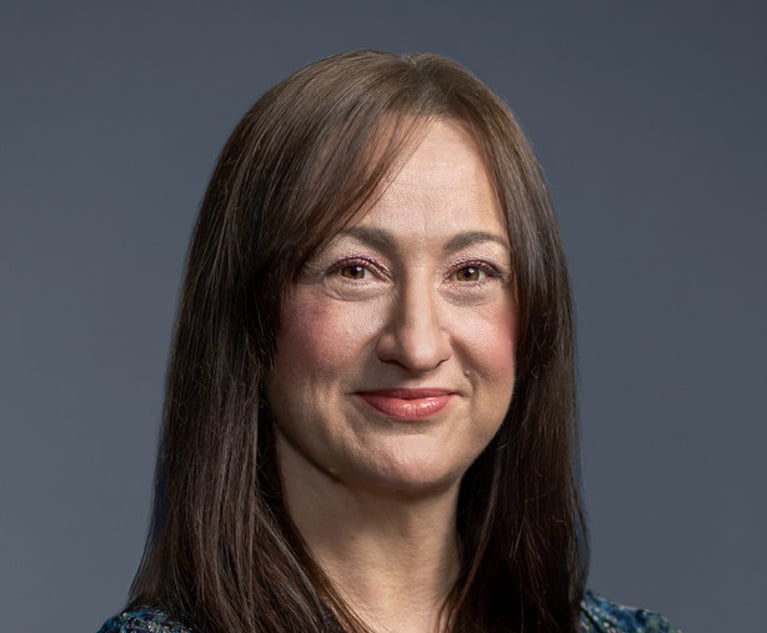Only the strongest survive
The boom times of recent years have seen the leading business
January 27, 1999 at 07:03 PM
7 minute read
With demand for legal services at best holding steady, Manchester is witnessing a bloody, if dignified, battle for marketshare of the best commercial work. This fight in the biggest legal centre in the North West is accelerating a process of polarisation – or "the good firms getting better, while the rest struggle" as one managing partner describes it.
"The thing to understand about Manchester is that we used to be puzzled by Leeds and Birmingham, where there was a Big Five or Six and then nothing," says Cobbetts managing partner Michael Shaw. "Manchester had a whole raft of good firms of all sizes. That has changed in the last couple of years."
The demise last November of 17-partner Slater Heelis, the oldest firm in Manchester, is the starkest example of these market pressures at work. The battlefield, it appears, is being cleared to leave only the biggest players alongside some fleet-of-foot niche practices such as Chaffe Street.
"I do not believe the legal market is getting bigger, just that we are getting a larger share," Halliwell Landau senior partner Roger Lancaster says. "The North West is still a very big market. There is still a lot to get out of it."
The boom times of the late 1990s and the process of polarisation have fuelled major expansion by the leading commercial firms. Halliwells, for example, expanded from 125 staff to almost 300 in just three years.
However, it is still premature to talk of a Big Five or Big Six in Manchester as if they were all the same, according to Addleshaw Booth & Co's high-profile senior partner Paul Lee. "It's an easy label, but it is more unhelpful," he says.
Lee's firm is still the most widely-discussed in the city. Long the undisputed number one, it is clear that the other big players now sense an opportunity to challenge its status.
Lee denies this. "I think we are very, very different," he says, adding with careful emphasis: "In our chosen market areas we are miles ahead."
In corporate finance, its main engine, the firm undoubtedly had a powerful year in 1998, advising on £3bn worth of deals. On the thorny subject of the firm's profitability relative to its rivals, Lee is adamant that "we will be a lot more profitable this year after our massive investment".
Both his own partners and his competitors will be watching the results for 1998-99 very closely. Apart from meeting the expectations of increased profits, Lee and his management board will have to meet the challenge of smoothly absorbing the seven-partner team it took from Slater Heelis and also make its investment in a London office pay off.
Stalking Addleshaws are national firms Dibb Lupton Alsop, Hammond Suddards and Eversheds, and the largest single-site practices, Halliwells and Cobbetts.
Dibbs, Addleshaws' next-door neighbour in the city's up-market Barbirolli Square development and by common consent its nearest competitor, is coming to terms with a sudden change of senior management following the departure of Paul Nicholls to head the firm's London operations.
The new man at the helm, former head of property Roy Beckett, is in fighting form. "My job is to lead the charge to being a clear number one," he says.
For Beckett the challenge will be to take Nicholls' legacy of a successful merged office to the next level. "We have made particular strides in corporate finance," he says, pointing to an increase in plc clients and a strong venture capital team. The firm's new offices, he adds, "help clients and companies see the size of practice we are. It is more than obvious we are a serious player".
The only time Beckett bridles is when he is asked about the "City firm with regional offices" slogan the firm controversially adopted last year. "We are able to deliver City quality services. If we are up against City firms, they will not think they are up against hicks," he says.
Like Dibbs, Hammonds has a relatively new and youthful managing partner in William Downs. The firm has posted spectacular growth rates since it opened in Manchester in 1993, culminating in a 38% increase in turnover last year, with work advising AIM-quoted companies a particular success.
Hammonds' office has also clearly benefited from its trans-Pennine practice. While the original instruction for last year's £350m demerger and flotation of powertrain engineering company Torotrak came through Leeds, the work was handled 50:50 with Manchester, Downs says. The firm also benefits from having its firm-wide private finance initiative (PFI) and utilities practice run from Manchester.
Eversheds' Manchester practice is another office to do well out of its national strength, with work gained for plcs on a national basis being allocated to the office. Rivals also comment on the improved performance of the office since the ties between its Manchester and Leeds offices were strengthened.
David Asbro, who manages both offices, attributes the success to "the strength of the national brand". Its banking team, led by Nigel Dale, also put in a particularly strong performance in 1998, working on deals worth a combined £1bn.
Other national firms looking to make greater in-roads into the best commercial work in 1999 are Garretts and, in their specific focus areas, firms such as Davies Arnold Cooper (DAC) and Masons.
All have recruited recently, all have posted increased turnover and all have been involved in some notable deals. Garretts saw turnover rise by 40% last year and took on two partners and 13 other fee-earners. DAC advised on the £82.5m South Manchester Healthcare project financing deal, described by regional managing partner Stephen Houston as particularly significant for the office.
In the battle for market share, Manchester's leading home-grown are undoubted major players. The larger of the two single-site Manchester practices, 43-partner Halliwell Landau has a powerful reputation for its entrepreneurial style and the dynamism of its five or six leading partners.
The firm suffered badly in the recession in the early 1990s, but has staged a powerful comeback, doubling turnover over the last three years to £13.3m. Halliwell's Lancaster is upbeat. "The departments that are doing well are litigation, property and commercial," he reports. "There is no evidence of slackening."
Lancaster says that the firm does not wish to be national, but its competitors expect it to establish a foothold in London soon.
Cobbetts, for the time being, is studiously avoiding the national route.
"We are not trying to be a national firm. There are fundamental differences in culture," Cobbett's Shaw says. "We are a more conservative, institutional firm."
Indeed, Shaw mentions the desire to be seen as a "decent" firm twice in our interview and will be seeking to disprove the old saying that nice guys finish last.
According to Shaw, Cobbetts has been re-engineered over the last few years and will look to expand off the back of its traditional property strength and the impetus generated by taking on nine partners and about 40 fee-earners from Slater Heelis.
Pannone & Partners is the third major single-site practice in the city. "We see ourselves as fairly unique," says managing partner Joy Kingsley, adding that the firm does not see itself as directly competing with the others. But the firm's commercial side, she points out, still provides 50% of the firm's turnover, which last year rose by almost 20%.
For all the Manchester commercial firms, the next 12 months are likely to prove a fiercely competitive, bruising time, particularly as there appears to very little scope for growth by merger locally.
This content has been archived. It is available through our partners, LexisNexis® and Bloomberg Law.
To view this content, please continue to their sites.
Not a Lexis Subscriber?
Subscribe Now
Not a Bloomberg Law Subscriber?
Subscribe Now
NOT FOR REPRINT
© 2025 ALM Global, LLC, All Rights Reserved. Request academic re-use from www.copyright.com. All other uses, submit a request to [email protected]. For more information visit Asset & Logo Licensing.
You Might Like
View All
MoFo Launches in Amsterdam: Exclusive Interview with Global Chair Eric McCrath
2 minute read
Clifford Chance Boosts Private Credit Offering With Mayer Brown Partner Duo
2 minute read

Ex-Mayer Brown Corporate Lawyer Leads Race for German Chancellor in Snap Election
4 minute readTrending Stories
- 1Courts, Lawyers Press On With Business as SoCal Wildfires Rage
- 2Florida, a Political Epicenter, Is the Site of Brownstein Hyatt's 13th Office
- 3Law Firms Close Southern California Offices Amid Devastating Wildfires
- 4Lawsuit alleges racial and gender discrimination led to an Air Force contractor's death at California airfield
- 5Holland & Knight Picks Up 8 Private Wealth Lawyers in Los Angeles
Who Got The Work
Michael G. Bongiorno, Andrew Scott Dulberg and Elizabeth E. Driscoll from Wilmer Cutler Pickering Hale and Dorr have stepped in to represent Symbotic Inc., an A.I.-enabled technology platform that focuses on increasing supply chain efficiency, and other defendants in a pending shareholder derivative lawsuit. The case, filed Oct. 2 in Massachusetts District Court by the Brown Law Firm on behalf of Stephen Austen, accuses certain officers and directors of misleading investors in regard to Symbotic's potential for margin growth by failing to disclose that the company was not equipped to timely deploy its systems or manage expenses through project delays. The case, assigned to U.S. District Judge Nathaniel M. Gorton, is 1:24-cv-12522, Austen v. Cohen et al.
Who Got The Work
Edmund Polubinski and Marie Killmond of Davis Polk & Wardwell have entered appearances for data platform software development company MongoDB and other defendants in a pending shareholder derivative lawsuit. The action, filed Oct. 7 in New York Southern District Court by the Brown Law Firm, accuses the company's directors and/or officers of falsely expressing confidence in the company’s restructuring of its sales incentive plan and downplaying the severity of decreases in its upfront commitments. The case is 1:24-cv-07594, Roy v. Ittycheria et al.
Who Got The Work
Amy O. Bruchs and Kurt F. Ellison of Michael Best & Friedrich have entered appearances for Epic Systems Corp. in a pending employment discrimination lawsuit. The suit was filed Sept. 7 in Wisconsin Western District Court by Levine Eisberner LLC and Siri & Glimstad on behalf of a project manager who claims that he was wrongfully terminated after applying for a religious exemption to the defendant's COVID-19 vaccine mandate. The case, assigned to U.S. Magistrate Judge Anita Marie Boor, is 3:24-cv-00630, Secker, Nathan v. Epic Systems Corporation.
Who Got The Work
David X. Sullivan, Thomas J. Finn and Gregory A. Hall from McCarter & English have entered appearances for Sunrun Installation Services in a pending civil rights lawsuit. The complaint was filed Sept. 4 in Connecticut District Court by attorney Robert M. Berke on behalf of former employee George Edward Steins, who was arrested and charged with employing an unregistered home improvement salesperson. The complaint alleges that had Sunrun informed the Connecticut Department of Consumer Protection that the plaintiff's employment had ended in 2017 and that he no longer held Sunrun's home improvement contractor license, he would not have been hit with charges, which were dismissed in May 2024. The case, assigned to U.S. District Judge Jeffrey A. Meyer, is 3:24-cv-01423, Steins v. Sunrun, Inc. et al.
Who Got The Work
Greenberg Traurig shareholder Joshua L. Raskin has entered an appearance for boohoo.com UK Ltd. in a pending patent infringement lawsuit. The suit, filed Sept. 3 in Texas Eastern District Court by Rozier Hardt McDonough on behalf of Alto Dynamics, asserts five patents related to an online shopping platform. The case, assigned to U.S. District Judge Rodney Gilstrap, is 2:24-cv-00719, Alto Dynamics, LLC v. boohoo.com UK Limited.
Featured Firms
Law Offices of Gary Martin Hays & Associates, P.C.
(470) 294-1674
Law Offices of Mark E. Salomone
(857) 444-6468
Smith & Hassler
(713) 739-1250







